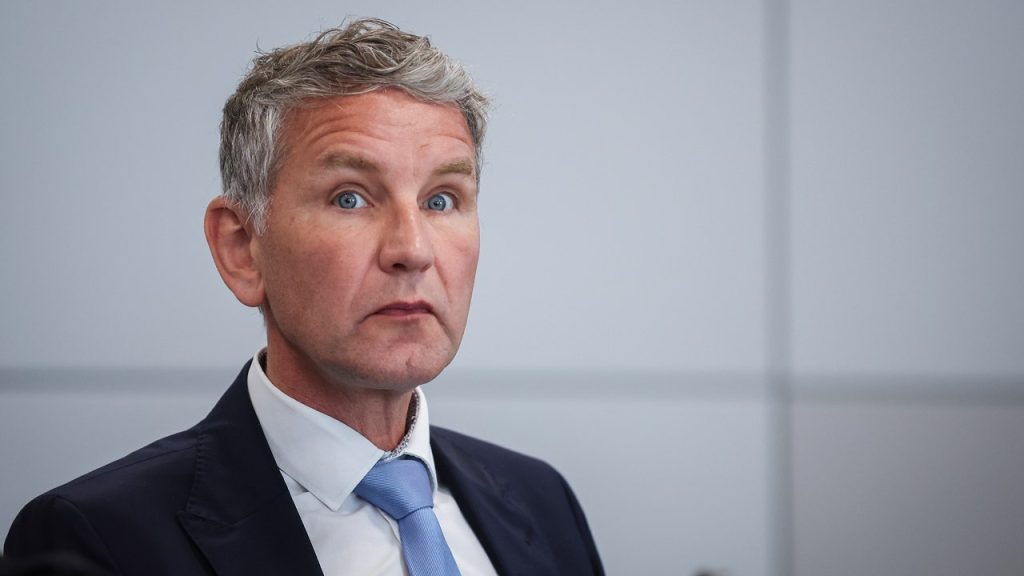Björn Höcke, a prominent figure in the far-right Alternative for Germany party, was convicted by a court for using a Nazi slogan in a speech and was ordered to pay a fine of around $14,000. The charge carried a maximum sentence of three years in prison, but prosecutors had sought a six-month suspended sentence while defense lawyers argued for acquittal. Höcke had used the phrase “Everything for Germany!” during a speech in Merseburg, and prosecutors contended that he was fully aware of its origin as a Nazi SA slogan, contrary to his claims that it was just an “everyday saying.”
Höcke is a key figure in the hard-right faction of the AfD party and has led the party’s regional branch in Thuringia since its founding in 2013. Despite controversial statements, including calling the Holocaust memorial in Berlin a “monument of shame,” Höcke has remained a prominent figure within the party. The court case came just before a regional election in Thuringia where he planned to run for the governor’s job. However, the conviction may not have a significant political impact on his ambitions, as it won’t directly affect his candidacy. AfD has a strong presence in the formerly communist east of Germany, making coalition building in the region challenging.
It is unlikely that other political parties will agree to work with Höcke and put him in the governor’s office due to his controversial statements and the strong stance of the AfD in the region. Despite being one of the strongest parties in Thuringia, the AfD faces challenges in forming governing coalitions due to its reputation and positions. The domestic intelligence agency has three branches of AfD under official surveillance as “proven right-wing extremist” groups. In a separate case on Monday, a court ruled that the agency was justified in observing the entire party for suspected extremism, a move that AfD has criticized as a political ploy to discredit the party.
During the trial, prosecutor Benedikt Bernzen argued that Höcke had strategically and systematically used Nazi vocabulary in the past, further complicating his position within the party and in the political landscape. Höcke accused prosecutors of not seeking exonerating circumstances and argued that freedom of opinion is restricted in Germany. Despite his claims of innocence and being a “law-abiding citizen,” the court was convinced that Höcke was aware of the banned SA slogan he used. The details of the trial, including testimonies from both sides, highlighted the tensions between political ideologies and freedom of expression in Germany.
It remains to be seen how the conviction will affect Höcke’s political career and the AfD’s position in Thuringia and beyond. The party’s reputation has been tarnished by allegations of right-wing extremism, and the court rulings only add to the challenges they face in gaining broader acceptance in the political mainstream. As AfD seeks to appeal the monitoring by the intelligence agency and navigate internal divisions, the future of the party and its key figures like Björn Höcke remains uncertain. The ongoing legal battles and political controversies surrounding the AfD underscore the deep divisions within German society and the challenges of dealing with far-right ideologies in a democratic context.













